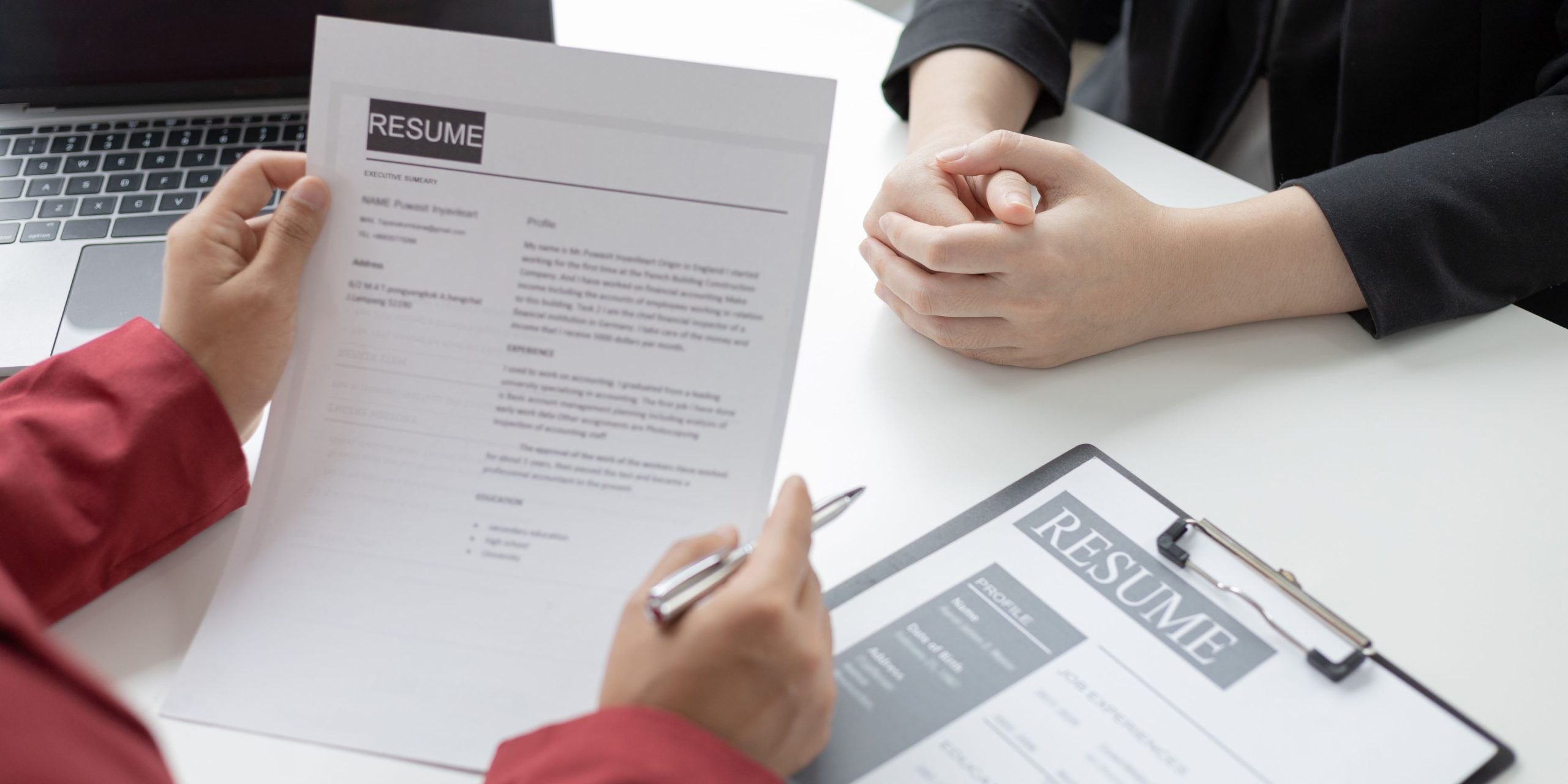
“Congratulations, you’re hired!”
That’s the phrase every job seeker longs to hear. But more often, interviews end with a polite, “We’ll be in touch,” and sometimes, that follow-up never comes. After a string of rejections, it’s natural to wonder if something is missing on your end.
Here’s the good news: it’s not always about lacking qualifications. Often, it’s a matter of refining your approach and building the right strategy.
Interviews are like strategic conversations where both candidates and employers are looking to find the right fit. You’re seeking a promising career, while the employer hopes to find the ideal employee.
You may have all the qualities of a top-notch candidate, but you may be overlooked unless you can effectively communicate your value. To help you put your best foot forward, here’s a comprehensive guide on interview preparation – from pre-interview steps to post-interview follow-up.
Essential Pre-Interview Preparation Tips
A successful interview begins long before you walk into the room. Preparation is key to making an impression and bringing confidence to the interview. Here are 4 essential steps to help you approach your next interview with confidence and clarity.
1. Why You Should Always Bring a Copy of Your Resume
Your resume is your first chance to communicate your qualifications, and bringing a physical copy shows thoughtfulness and preparedness. Even if you’ve already submitted it online, handing over a well-organized resume during the interview demonstrates professionalism.
For tips on creating a resume that stands out when submitting online, check out our guide on crafting an ATS-friendly resume.
Related: How to Write an ATS-Friendly Resume in 6 Easy Steps
2. Dress to Impress: Choosing Professional Interview Attire
Your interview is all about making a strong, professional first impression.
Choose an outfit that aligns with the role you’re pursuing – think “dress for the job you want.” Your attire isn’t just about looking good; it communicates respect and professionalism to your interviewer. Plus, putting thought into your appearance can boost your own confidence, helping you feel ready for the day.
3. How to Project Confidence in Job Interviews
Confidence can make a world of difference in how you’re perceived. Demonstrate your belief in your ability to excel in the role through your tone, body language, and the way you present yourself.
If confidence feels challenging, focus on preparing for potential interview questions, acknowledging any nerves, taking a calming breath, and aiming to stay present. And if you need a boost, try the “fake it till you make it” approach – presenting yourself with assurance can help you feel more at ease and project the confidence interviewers look for.
4. The Importance of Bringing a Notebook to Interviews
A notebook might seem simple, but it’s a powerful tool to have during an interview. Just like your resume and appearance, it communicates your professionalism, organization, and readiness. Beyond its appearance, it’s also invaluable for keeping track of important points.
Start by noting down a few thoughtful interview questions to ask, and use your notebook to jot down key information during the interview. This approach prevents misunderstandings and keeps your reference points clear, helping you feel more prepared and confident.
With these pre-interview tips, you’re now ready to walk into your interview prepared and poised to make a great impression.
Making a Strong First Impression in Interviews
You’ve made it to the interview – now’s your chance to make a memorable impression. Interviews are a chance to showcase your skills, experiences, and how you carry yourself.
Success in an interview isn’t just about answering questions; it’s also about demonstrating confidence, professionalism, and social skills. These next tips will help you navigate the interaction with poise and purpose.
5. Powerful Posture Tips for Interview Success
Although sitting upright can feel unnatural at times, maintaining good posture is essential during an interview. Studies show that a straight posture signals confidence to others and boosts your own sense of self-assurance.
Keep your back straight, shoulders relaxed, and resist the urge to slouch – you’ll come across as focused and engaged.
6. Using Body Language to Enhance Interview Confidence
Your posture is just one piece of your overall body language. Be mindful of where you place your arms and how you position yourself. Keeping your arms uncrossed and your shoulders open communicates that you’re approachable and ready to engage. Unsure of what to do with your hands? Try resting them on the armrests or in your lap.
7. Mastering Eye Contact for Interview Success
Eye contact is powerful in any social interaction. It conveys confidence, interest, and respect. When speaking with your interviewer, maintain comfortable eye contact. Remember to find a balance – too much can feel intense, while too little may come off as disengaged. Use eye contact naturally as a way to connect and show that you’re fully present in the conversation.
With these tips in mind, you’re ready to dive into the conversation with confidence and poise.
Related : 5 Essential Job-Seeking Skills
How to Navigate Interview Conversations Like a Pro
Interviews are more than a series of questions and answers; they’re an opportunity to build a bond with the interviewer, demonstrate you’re fit for the role, and highlight your professionalism. Every interaction, from a simple smile to the way you respond to questions, helps the interviewer see you as a potential colleague. Here’s how to navigate this phase with finesse.
8. Why Being Friendly and Smiling Matters in Interviews
A friendly demeanor and genuine smile go a long way.
Think of it from the interviewer’s perspective: they’re choosing someone to work with every day. A warm, personable attitude makes a positive impression, showing you’d be an easy colleague to connect with.
9. Staying Focused in Interviews: Listen, Ask, and Respond Well
Focus on what your interviewer says, and respond thoughtfully.
Listen closely, ask relevant questions about the role or company, and demonstrate your interest. When answering interview questions, honesty is key. If there’s a sensitive topic – such as a previous job that wasn’t a great fit – keep it tactful. Instead of focusing on negatives, frame it as a learning experience or a difference in approach.
10. How Taking Notes Can Improve Your Interview Performance
Use your notebook to capture any critical information. Note-taking helps you remember details while showing the interviewer that you’re thorough and prepared.
11. Showcase Your Skills Effectively in Interviews
This is the main reason you are here – show the interviewer why you’re the ideal candidate. Discuss:
- Relevant achievements.
- Current projects.
- Specific ways you can contribute to the company’s success.
By sharing examples and concrete outcomes, you give your interviewer a clear picture of the value you bring.
12. Showing Courtesy with Hospitality During Interviews
If your interviewer offers coffee or a drink, accept it graciously. It’s a simple way to show openness and good manners. And here’s a pro tip: after the interview, if there’s an opportunity, tidy up or offer to handle your own cup.
This small act of courtesy can help you stand out.
With these suggestions, you’ll be ready to make the best impression possible.
Related : Why Upskilling Can Help You Progress in Your Career
Key Final Steps After the Job Interview
Congratulations! You’ve completed the interview and shown your best self. But the process isn’t over just yet. Now, it’s time to wrap things up smoothly to leave a lasting impression. Here’s how to finish strong.
13. Leaving a Positive Lasting Impression with a Farewell
If time allows and the interviewer seems open to it, a bit of friendly small talk as you’re wrapping up can leave a positive, lingering impression. Take this opportunity to get a sense of your potential colleague’s personality and to learn more about the company culture. It’s a casual, natural way to help the interviewer envision you as part of the team.
When it’s time to leave, give a firm handshake, maintain eye contact, and thank them for their time.
14. How and When to Send a Follow-Up Email After an Interview
Following up with a thank-you email is essential. It shows appreciation for the interviewer’s time and reinforces your interest in the role. Not every candidate takes this extra step, so it’s an easy way to stand out.
Aim to send this follow-up within 24 hours of the interview. A brief but sincere message is enough to keep you fresh in their mind. If you don’t hear back within a week, sending a polite inquiry about your application’s status can keep the lines of communication open.
By following up, you demonstrate your interest and perseverance while reminding the hiring team of your potential as a dedicated, proactive employee.
Wrap-Up: Embracing Interview Outcomes
All that’s left now is the waiting game, with two possible outcomes:
Accepted: Next Steps After Getting the Job Offer
Congratulations on stepping into your new role!
Send a thank-you email, follow any onboarding instructions from HR, and start preparing for your exciting journey ahead.
Rejected: Staying Positive and Moving Forward in Job Search
If this one didn’t work out, don’t be discouraged – rejections are part of the process, and they’re often just stepping stones on the path to success. Remember, it only takes one “yes” to land the right opportunity. Keep refining your approach, exploring other roles, and, if you’re ready to strengthen your qualifications, consider adding to your skill set.
Look into programs available at Academy of Learning Career College to help you stand out in future applications.

